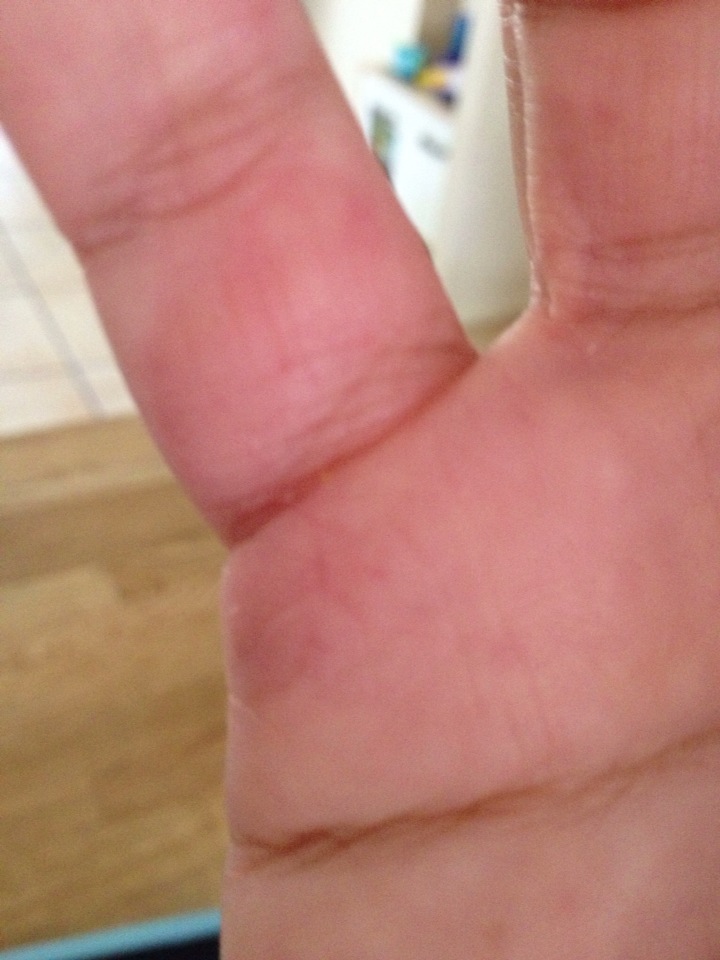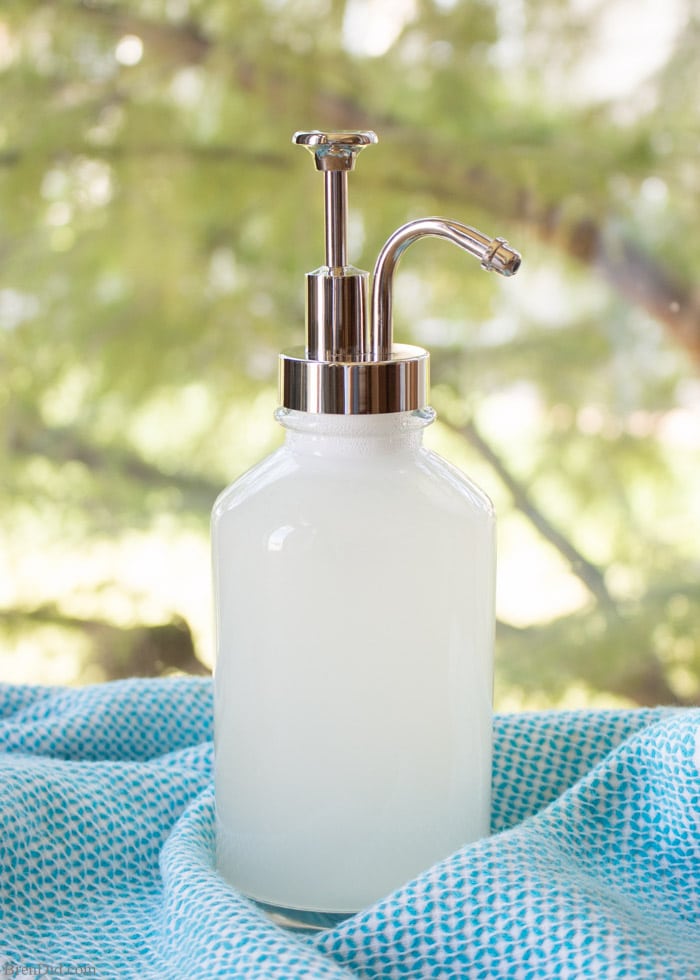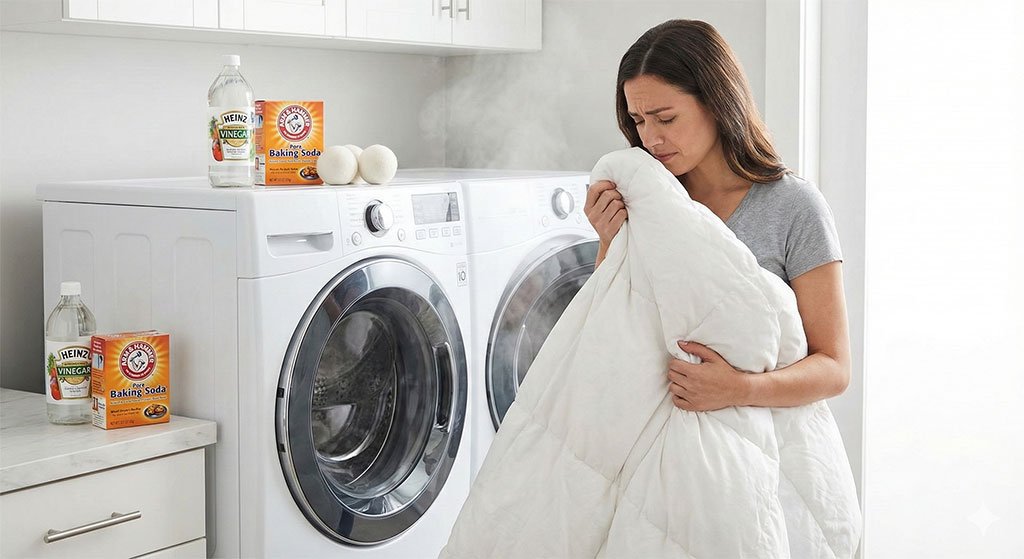You should not use dishwasher detergent to hand wash dishes as it can be harsh on your skin and overly sudsy. Dishwasher detergents are formulated differently than hand dishwashing soap.
Washing dishes by hand is a daily task for many, yet using the appropriate detergent is crucial for both cleanliness and safety. Dishwasher detergents contain strong chemicals designed to work in the high heat and water pressure environment of a dishwasher, which can be abrasive and harmful to your hands.
Moreover, these detergents are more concentrated and produce excessive suds that are difficult to rinse off when washing by hand. For optimal results and to avoid irritation or damage to items that are not dishwasher-safe, it’s recommended to use milder dish soap specifically labeled for hand washing. This ensures that dishes are effectively and safely cleaned without the risks associated with using inappropriate cleaning agents.
Table of Contents
Alternative Dish Washing
Have you ever found yourself eyeing the dishwasher detergent when you’re out of liquid soap for hand-washing dishes? Many people wonder about using what’s on hand rather than making a trip to the store. This curiosity births the concept of alternative dishwashing methods. Let’s dive into the world of dish cleaning, exploring both time-tested and unconventional ways to tackle greasy plates and pans.
When you run out of your regular dishwashing liquid, your gaze might fall upon the dishwasher detergent. Should you use it? The possibility sounds convenient, but it’s essential to know the ins and outs of such alternatives. Traditionally, dishwasher detergent and dish soap serve different purposes with distinct formulas. Now, we’ll embark on a journey through the foundations of dishwashing, both conventional and alternative, to enhance your knowledge and dish-cleaning experience.
Conventional Dishwashing
- Hot Water: Kills germs and works with soap to clean dishes.
- Dish Soap: Formulated for safe, effective hand washing.
- Scrubbing Tools: Different materials for various dish types.
- Rinsing: Removes soapy residue, leaving dishes spot-free.
Exploring Alternatives
When standard dish soap is missing, you might contemplate using what’s available – like dishwasher detergent. Yet, this product is meant for machine use and requires precautions. Here’s a glance at what else you could consider:
- Baking Soda: Gentle and effective for cutting through grease.
- Vinegar: Great for glassware and removing odors.
- Bar Soap: A potential temporary substitute if rinsed thoroughly.
Remember, choosing an alternative means understanding its suitability for the task and ensuring that it won’t harm your dishes or health.

Credit: www.cookingforbusymums.com
The Composition Of Dishwasher Detergent
The Composition of Dishwasher Detergent: When considering whether you can use dishwasher detergent for hand washing dishes, it’s essential to understand its makeup. Unlike hand soap, dishwasher detergent is a powerhouse of specific chemicals. These components ensnare and break down stubborn food remnants, grease, and stains efficiently inside a dishwasher. Let’s dive deeper into the key ingredients and chemical properties that make dishwashing detergents so effective and distinct from regular hand-washing detergents.
Key Ingredients
- Enzymes: Target and dismantle protein and starch-based stains.
- Surfactants: Reduce surface tension to lift grease off dishes.
- Bleach: Removes tough stains and sanitizes your dishes.
- Builders: Soften water to enhance cleaning efficiency.
- Phosphates (in some detergents): Act to prevent spotting and filming.
Chemical Properties
Dishwasher detergents possess a higher pH level around 9 to 10.5. This alkalinity enables effective cleaning but may irritate the skin during hand washing. Additionally, they include alkaline salts and nonionic surfactants that are not readily biodegradable, making them less eco-friendly for frequent water disposal. The enzymes present in the formula can remain active, potentially causing damage to skin cells upon prolonged exposure.
Differences Between Dishwasher And Hand Wash Detergent
Ever stared at your dish soap and dishwasher detergent and wondered if they’re interchangeable? They may seem similar, but key differences exist. Let’s dive deep into these differences and understand why they serve distinct purposes.
Formulation Objectives
Dishwasher and hand wash detergents are formulated with specific goals in mind.
- Dishwasher detergent is made to work with machine cycles. It breaks down food residues without suds.
- Hand wash detergent creates suds. It’s softer on hands and easy to rinse off.
Impact On Skin
The ingredients in detergents affect your skin differently.
Detergent Type | Impact on Skin |
|---|---|
Dishwasher Detergent | More abrasive chemicals can harm skin. |
Hand Wash Detergent | Gentler, often includes moisturizers. |
Dishwasher detergents are not designed for skin contact. They can cause dryness or irritation. Hand wash options, on the other hand, are milder and often contain skin-protecting ingredients.

Credit: brendid.com
The Risks Of Using Dishwasher Detergent By Hand
Dishwasher detergent is formulated for machine use, not for your hands. The chemicals used are harsher than those in regular dish soap. This post examines why reaching for dishwasher detergent for a quick hand wash of your dishes might not be safe.
Skin Irritation Concerns
Hand washing dishes with dishwasher detergent can lead to skin problems. The ingredients are not designed for direct skin contact. They can cause dryness, itching, or even rashes. Here’s what you need to know about skin irritation risks:
- Chemicals may strip natural oils, causing dryness.
- Sensitive skin reacts more severely to irritants.
- Wearing gloves can help protect your hands.
Long-term Health Effects
Dishwasher detergents contain compounds that can be harmful with prolonged exposure. These effects on health should not be ignored.
Compound | Potential Risk |
|---|---|
Phosphates | Environmental harm, possible health risks |
Chlorine | Respiratory issues, thyroid disruption |
Surfactants | Skin irritation, hormone imbalance |
Washing dishes by hand with these detergents can lead to prolonged skin contact and inhalation of fumes, raising concerns about potential health impacts.
Efficiency Of Dishwasher Detergent In Hand Washing
Exploring the Efficiency of Dishwasher Detergent in Hand Washing unveils a mix of benefits and challenges. With potent cleaning agents, dishwasher detergents are designed to tackle food residue and grease in machines. The question remains: do these qualities transfer effectively when washing dishes by hand?
Cleaning Power
Dishwasher detergent typically contains robust cleaning ingredients. These substances break down tough grime and oils found on cookware. The concentration of dishwasher detergent is significantly higher than that of hand soap, which may lead to impressive cleaning results. However, the strength of these detergents also means they could be harsher on skin.
- Higher percentage of active cleaning agents
- Removes baked-on food and grease with ease
- Potentially harsh on hands
Rinsing Challenges
When it comes to rinsing dishes, hand soap is a clear winner. Dishwasher detergents don’t dissolve as quickly and require more water to remove. This can lead to water waste and potentially soapy residues on dishes, which are undesirable and could even be a health concern.
Dishwasher Detergent | Hand Soap |
|---|---|
Requires more water to rinse off | Quick and easy to rinse |
May leave residue | Minimizes risk of residue |

Credit: www.quora.com
Practical Tips For Hand Washing With Dishwasher Detergent
Wondering if you can swap your regular dish soap for dishwasher detergent when tackling dirty dishes by hand? With the right approach, it’s possible! Dishwasher detergent contains powerful cleaning agents that require careful handling when used for hand washing. Below are practical tips to make this unorthodox method work safely and effectively.
Dilution Techniques
Dishwasher detergent is highly concentrated, meaning it’s much stronger than hand dishwashing liquid. Here’s how to dilute it:
- Fill a sink or basin with warm water.
- Add just a pinch of dishwasher detergent.
- Stir gently to mix without creating too many suds.
Remember, less is more. Never use the same amount as you would with regular dish soap.
Proper Rinsing
To ensure no residue is left on your dishes:
- After washing, rinse dishes thoroughly with clean water.
- Consider using a rinse agent or white vinegar to remove any lingering film.
- Check each dish for any soapy feel or spots before drying.
A final rinse in hot water will help sterilize the dishes and speed up drying.
Alternative Solutions For Emergency Dish Washing
Sometimes, the dishwasher is full, or you might run out of dishwasher detergent. Discovering alternative solutions for emergency dish washing can save the day. Learn to use safe and effective methods to get your dishes sparkling clean without standard dish soap.
Natural Substitutes
Several natural items double as cleaning agents. These are kind to your skin and the environment:
- Baking soda – Scrubs away tough grime.
- White vinegar – Cuts through grease and disinfects.
- Lemon juice – Works as a natural bleach and freshens.
Mix equal parts of baking soda and vinegar for a powerful clean. Add a squeeze of lemon for extra freshness.
Short-term Fixes
When out of dishwasher detergent, try these quick fixes:
- Bar soap – Grate a bar of soap to create a soapy solution.
- Shampoo – Use a small squirt to wash a sink full of dishes.
- Bath gel – Acts similar to soap, but use sparingly.
Reserve these fixes for one-time use to avoid potential film or residue.
Conclusion: Best Practices For Dish Washing
Clean dishes are a clear sign of a healthy, happy home. Dish washing may seem simple, but the right methods ensure cleanliness and safety. Certain best practices can help maximize efficiency while safeguarding your hands. Let’s explore what to use and how to protect your skin during the process.
Recommended Detergents
Choosing the correct detergent is crucial for dish washing by hand. Dishwasher detergent often includes harsh chemicals and abrasives. These additives are not suitable for hand washing. They can damage delicate dishware and irritate skin. For hand washing dishes, always opt for dish soap designed for hand washing. These soaps are gentle on skin and effective on grease.
- Mild dish soaps: Preserve your dishes’ shine and prevent hand irritation.
- Eco-friendly options: Protect the environment while getting the job done.
- Concentrated formulas: Offer powerful cleaning while using less product.
Maintaining Hand Health
Dish washing can take a toll on your hands. Prolonged exposure to water and chemicals may lead to dryness or cracks. Protect your hands by using gloves whenever possible. This simple practice shields your skin from harm. Opt for gloves that are comfortable and durable. If you have sensitive skin, look for hypoallergenic gloves.
- Wear gloves: Choose quality gloves to shield your hands from heat and detergents.
- Moisturize: Apply a good hand cream after washing to keep your skin hydrated.
- Warm water: Use warm rather than hot water to reduce skin irritation.
By following these best practices for dish washing, you ensure clean dishes and healthy hands.
FAQ
What To Use If You Run Out Of Dish Soap?
Use a mixture of baking soda and vinegar or lemon juice to clean dishes. Alternatively, employ bar soap or hand soap for a temporary solution.
Can You Use Dishwasher Liquid To Wash Your Hands?
Dishwasher liquid is not recommended for washing hands as it can be harsh on skin and may cause irritation. It’s formulated for dishes, not human skin. Use hand soap instead for safe handwashing.
What Is A Good Substitute For Dish Soap?
A good substitute for dish soap is a mixture of baking soda and vinegar or using castile soap as an alternative.
What Can I Use To Hand Wash Dishes?
To hand wash dishes, use dish soap, warm water, a sponge or dishcloth, and optionally rubber gloves for protection. Rinse thoroughly after washing.
Bottom Line
Wrapping up our discussion, it’s clear that dishwasher detergent is not ideal for hand-washing dishes. For your safety and to protect your dishes, stick to regular dish soap. Embrace the right products and techniques for sparkling clean results without any unnecessary risks.
Your hands and homewares will thank you.


